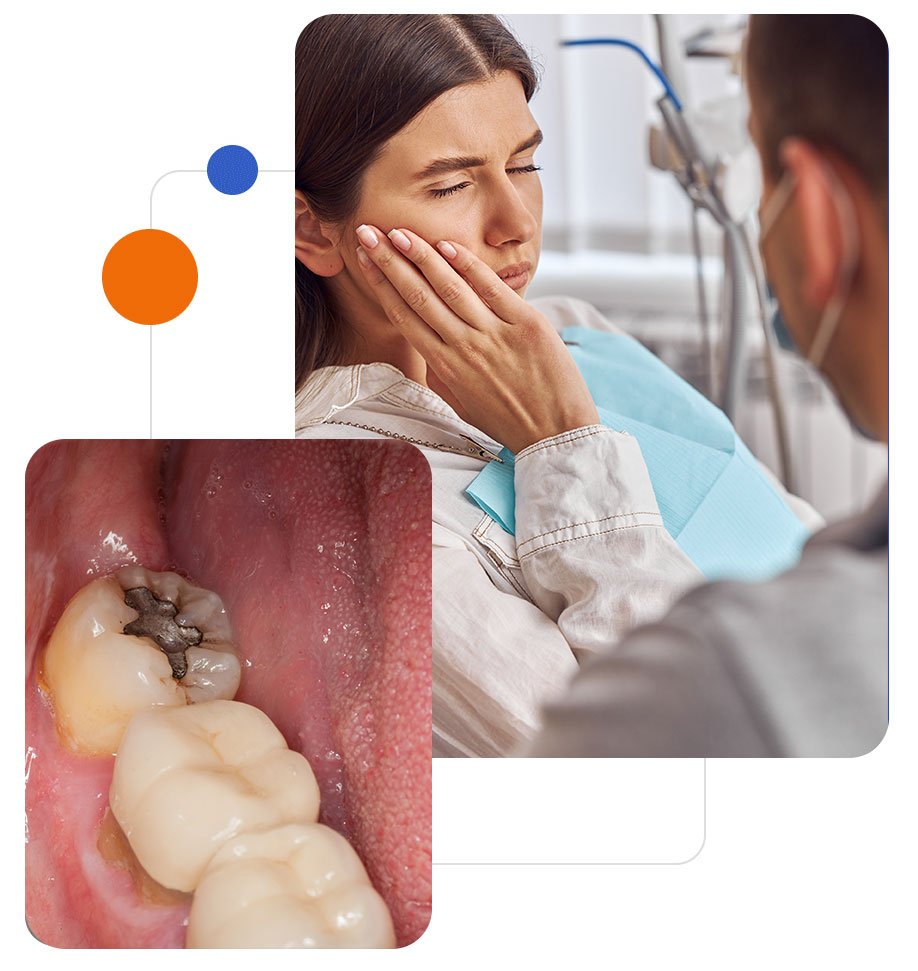
Wisdom Teeth Removal
Rear teeth are known as third molars or wisdom teeth. These are the last teeth to erupt around 16-24 years of age. Most people have four wisdom teeth- two upper and two lower. Some people may have less than four or none wisdom teeth.
Most of us will have enough room for these to erupt normally, in line with our other teeth. In such situations they have the same function as the other molar teeth. In other instances, wisdom teeth can get impacted when there is insufficient gum space for normal eruption.
Reasons for Wisdom Teeth Removal
Wisdom teeth do not need removal if they have erupted completely in alignment with other teeth. Wisdom teeth may require removal if one of the following conditions exist:
- Caries or holes in wisdom teeth
- Impaction
- Infection in gums- Pericoronitis
- Jaw cysts
- Causing damage to adjoining teeth
We recommend screening for potential problems whether or not you are experiencing pain or discomfort from wisdom teeth.
To ensure the appropriate treatment please book a consultation with our dentist.

Process of Wisdom Tooth Removal
Our dentist will examine your teeth clinically and with OPG x-ray. They will then determine the type of care and whether you need removal of one or more wisdom teeth. Our dentist are skilled to remove impacted teeth, but some cases may need a specialist intervention due to the shape or position of the roots of the tooth. For this, a referral will be organised and process explained.
The teeth can be removed under local anaesthetic, inhalation sedation or general anaesthetic. The removal of wisdom teeth under local anesthetic is carried on the dental chair in our clinic. The area around the tooth is numbed and you will be awake during the procedure. There is no pain but the movements can be felt.
We also offer inhalational sedation (nitrous oxide) to relieve the anxiety of a dental visit. Once you are calm, then local anaesthetic is administered and the tooth is removed. If general anaesthetic is required for the procedure, then we organise a referral to specialist for the removal of teeth.

Precautions after Wisdom Teeth Removal
After the procedure you can expect some swelling and discomfort in the area for the first few days, but over-the-counter painkillers, such as paracetamol or ibuprofen, can help alleviate the pain. Sometimes there may be stitches placed if the wisdom teeth were deeply impacted. All the relevant instructions related to recovery and what to expect will be given to you by our dentist. Our dentist will also prescribe you appropriate antibiotics and pain relief if needed.